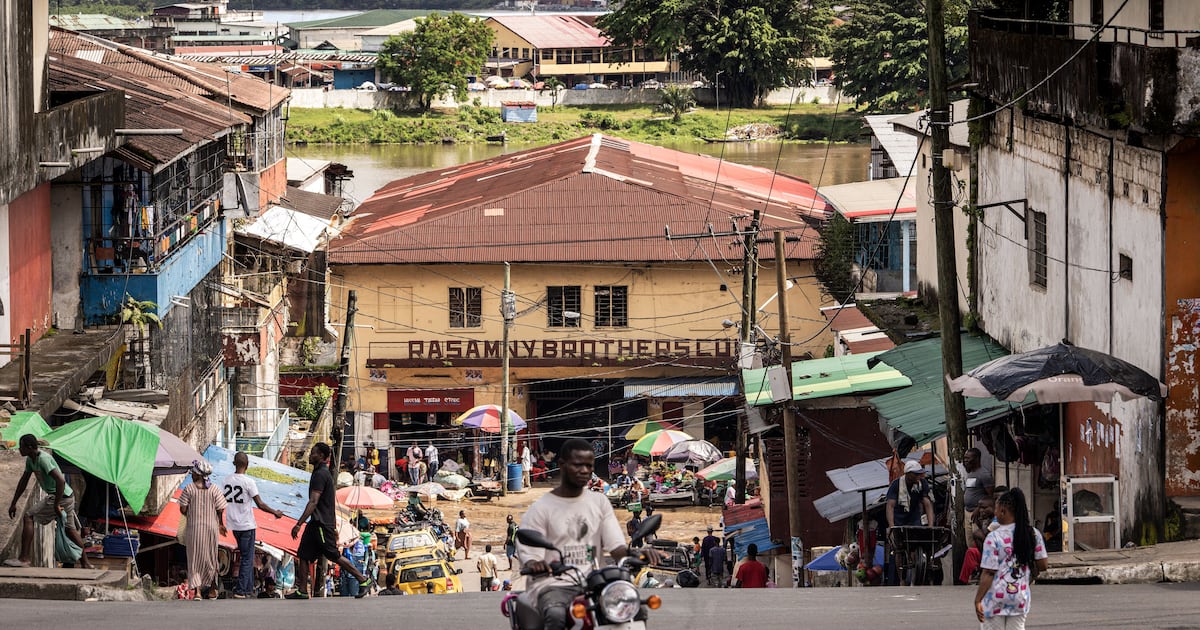The United States’ withdrawal from the World Health Organisation, termination of funding to the UN Population Fund and possible cuts to HIV/Aids funding will have far-reaching effects on vulnerable populations, Ministers have been told.
Senior Department of Foreign Affairs officials told Tánaiste Simon Harris and Minister of State Neale Richmond that low-income and fragile countries are expected to be adversely affected due to their dependence on official development assistance.
Mr Harris told an Oireachtas committee in June that the Department of Foreign Affairs asked Irish Ambassadors to report on their analysis of the impact of US overseas aid cuts.
In January, the Trump administration froze much overseas aid assistance pending a review. Later, the department of government efficiency eliminated 83 per cent of programmes run by the US government’s aid operation, USAid.
In July, secretary of state Marco Rubio announced USAid would officially stop implementing foreign aid and said future assistance would be targeted and limited. He said the United States was abandoning what he called a charity-based model and would focus on empowering countries to grow sustainably.
Last week, US president Donald Trump moved to cancel, unilaterally, $4.9 billion (€4.2 billion) in federal funding authorised by Congress, escalating the fight over who controls the nation’s spending. In a letter posted online late Thursday, Mr Trump told House of Representatives speaker Mike Johnson that he plans to withhold funding for 15 international programs, including some overseen by the State Department, the Agency for International Development (USAid).
Extracts of the reports filed by Irish diplomats on the impact of USAid cuts in their regions have been released by the Department of Foreign Affairs to The Irish Times.
A report sent from Liberia said USAid spending in the country amounted to about $150 million annually, equivalent to some 20 per cent of the national budget.
It said sectors such as health, education governance and agriculture were likely to be affected severely.
“USAid funding contributed very significantly to key activities like school feeding and teacher training in education, disease control, laboratory systems strengthening, community healthcare, and drug procurement in the health sector.
“The Ministry of Finance has estimated that the impact of the aid freeze will be approximately US$35million in the first quarter of 2025.
“The International Monetary Fund estimates that Liberia will be among the top five most affected countries by the USAid cuts.”
A report from the Irish embassy in Nairobi in February highlighted implications of funding cuts for HIV/SAIDS programmes in Kenya. The Kenyan government had enough antiretroviral drugs for at least six months at the time, but it was already experiencing “significant problems” with the supplies of “critical medicines” including antiretroviral drugs, vaccines and tuberculosis treatments, the Irish embassy said.
The embassy said there were “concerns around rolling back on HIV gains”.
On Somalia, diplomats said a US stop-work order had forced some security contractors to leave, while there were concerns about the future of the US-trained special forces who had been fighting the Al Shabaab militant group.
Diplomats writing on Sudan said the latest report from the Clingendael Institute, in the Netherlands, estimated up to 6 million Sudanese people would die in 2025 from conflict and hunger, and “this figure will likely increase if USAid funding does resume”.
A report from the embassy in Vietnam said the freeze to USAid was hitting “hard” in Cambodia, Laos and Myanmar.
“There has been an immediate impact in Cambodia especially in the areas of demining and independent media. Mine clearance has been suspended in eight provinces as a result, with serious consequences feared.”
Demining efforts and poverty reduction programmes in Laos were being affected, it said.
Diplomats said Vietnam’s Quang Tri province’s announced the suspension of multiple projects aimed at clearing unexploded bombs and supporting victims of Agent Orange, a herbicide mixture used by the US military during the Vietnam War.
